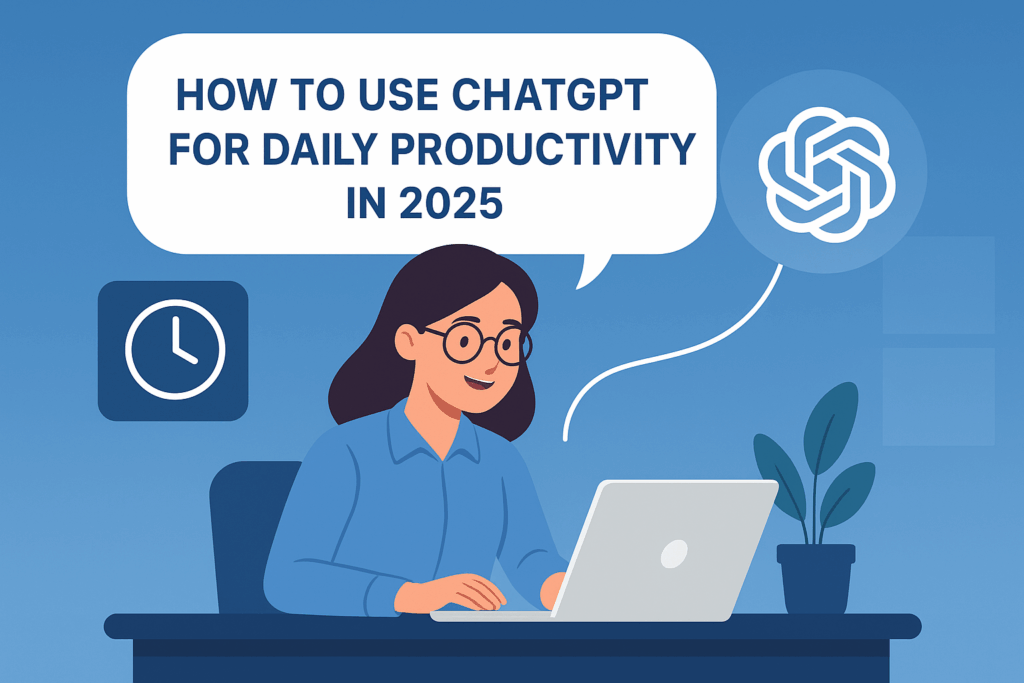
Introduction
Artificial Intelligence (AI) is no longer a futuristic concept reserved for tech giants. In 2025, AI has become a practical tool that small businesses can leverage to improve efficiency, cut costs, and compete in markets once dominated by larger corporations. From chatbots that streamline customer service to predictive analytics that guide decision-making, AI is transforming how small businesses operate.
This article explores the opportunities AI brings to small businesses, the challenges they may face, and practical steps for leveraging AI tools effectively.
- How AI is Changing the Landscape for Small Businesses
Small businesses have traditionally been limited by budgets, manpower, and access to advanced technology. AI is bridging these gaps by offering:
Affordable cloud-based AI solutions (e.g., chatbots, automation tools).
Data-driven insights that help in smarter decision-making.
Enhanced customer engagement through personalization.
Operational efficiency with automation in accounting, HR, and marketing.
These changes mean even a small retail shop or online store can now use tools previously accessible only to large corporations.
- Key Opportunities AI Offers Small Businesses
a) Improved Customer Service
AI-powered chatbots and virtual assistants allow small businesses to provide 24/7 customer support at a fraction of the cost of hiring full-time staff. For example, platforms like Tidio and ManyChat are widely used by small businesses today.
b) Smarter Marketing
AI tools like Jasper AI and Copy.ai help small businesses create engaging content, personalized emails, and optimized ads that reach the right audience. AI-driven analytics also help track customer behavior and predict future trends.
c) Cost Reduction through Automation
Repetitive tasks such as invoicing, payroll, or scheduling can be automated with AI, saving time and reducing human error. Tools like QuickBooks AI and Zoho AI are great examples.
d) Access to Global Markets
AI-driven translation tools and recommendation engines allow small businesses to compete in international markets. For instance, an e-commerce business in Nigeria can serve customers in Europe using AI-powered language and logistics support.
e) Product & Service Innovation
AI makes it easier for small businesses to experiment with new products. For example, a bakery can use AI to analyze customer preferences and predict which new flavor might sell best.
- Major Challenges Small Businesses Face with AI
While opportunities abound, AI adoption is not without challenges:
High Initial Costs: Even though AI tools are becoming affordable, setup and integration may still require investment.
Skill Gap: Many small business owners lack the technical knowledge to deploy AI effectively.
Data Privacy Concerns: Collecting and using customer data comes with responsibility and risks.
Fear of Job Losses: Staff may resist AI adoption, fearing automation could replace them.
Technology Dependence: Over-reliance on AI could make businesses vulnerable if systems fail.
- Practical Strategies for Adopting AI
To maximize benefits and minimize risks, small businesses should adopt a phased approach:
- Start Small: Begin with simple AI tools like chatbots or email automation.
- Invest in Training: Upskill employees to work with AI rather than fear it.
- Use Cloud Solutions: Instead of building custom AI, use SaaS-based AI services.
- Prioritize Data Security: Ensure compliance with data protection regulations.
- Measure ROI: Track whether AI adoption improves sales, reduces costs, or increases customer satisfaction.
- Real-Life Examples of AI in Small Businesses
Retail Stores: Use AI-powered inventory management to track stock levels and predict demand.
Restaurants: Implement AI-based recommendation systems to personalize menus for customers.
Freelancers: Use AI writing and design tools to create faster, better content for clients.
E-commerce Shops: Deploy AI chatbots to upsell products and answer customer queries instantly.
- The Future of AI for Small Businesses
In the coming years, we can expect:
More affordable AI solutions tailored for small businesses.
Voice AI becoming a dominant customer interaction channel.
AI-driven business intelligence providing deeper insights into consumer behavior.
Collaboration between humans and AI instead of replacement.
AI will increasingly become a partner for growth, innovation, and sustainability.
Conclusion
AI is reshaping the future of small businesses, offering unprecedented opportunities for growth while also posing challenges that require careful planning. By starting small, focusing on customer needs, and embracing AI gradually, small businesses can stay competitive in the fast-changing digital world.
Final Thought: The question is no longer whether small businesses should adopt AI, but how soon they can integrate it effectively.